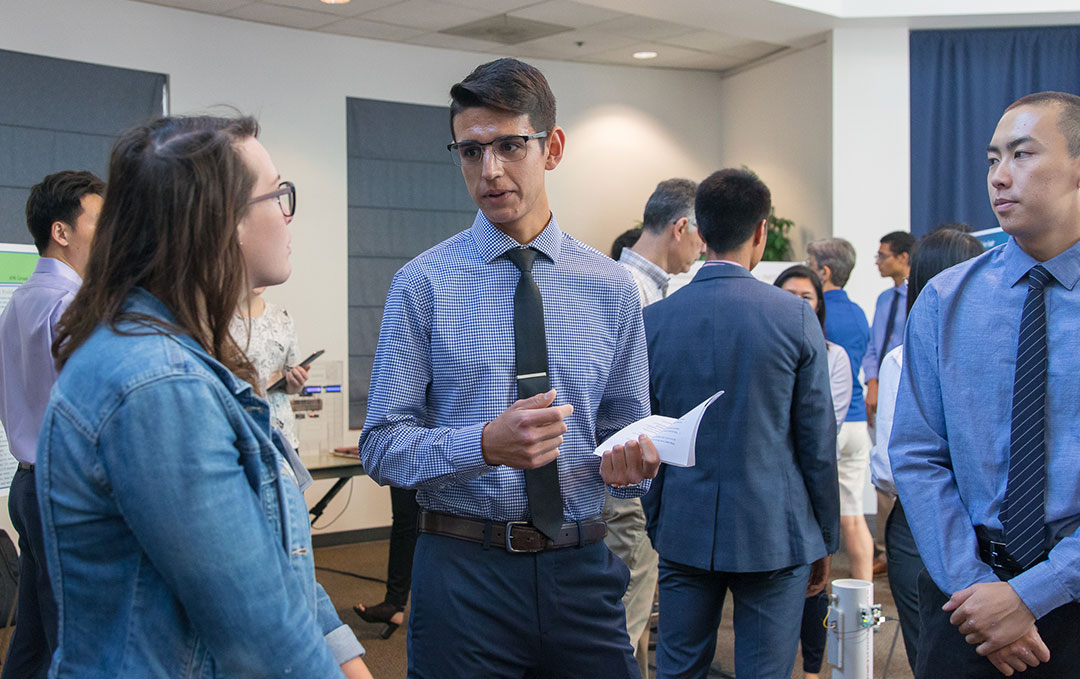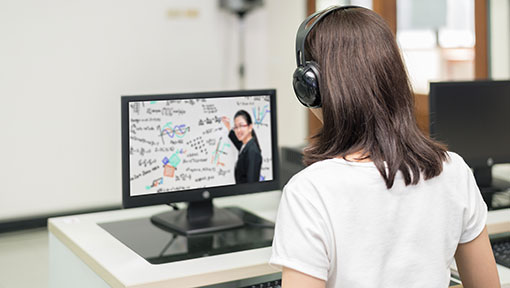
When spring quarter starts at UC Davis today (March 30), students will log in rather than arrive on campus. Their syllabi will have new sections devoted to virtual office hours, online etiquette and how exams will be proctored remotely.
Due to the coronavirus pandemic, classes at many institutions across the globe have moved online, creating an unprecedented situation for everyone. At UC Davis, Chancellor Gary S. May announced on March 15 that spring instruction would go online, giving faculty members about two weeks to redevelop their course plans.
Support snapped into action. Academic Technology Services and the Center for Educational Effectiveness continue to provide resources for faculty and collaborated on the Keep Teaching website to offer online assistance.
The library also has resources for remote teaching.
Professors are refreshing their skills with such platforms as Canvas, Zoom and Slack. They are developing more distinct opinions about synchronous versus asynchronous teaching. (Synchronous happens in real time, often with conversations and feedback, while asynchronous allows students to work on their own time, often with prerecorded lectures.)
Those with expertise in online learning have also been sharing their knowledge to help others get up to speed.
Walter Leal, a distinguished professor in the Department of Molecular and Cellular Biology, offered tips for how to lecture with Zoom. Distinguished professor of entomology James Carey shared 10 Considerations for Online Course Development.
Robert Blake, distinguished professor of Spanish and director of UC Davis Language Center, led a webinar for the languages program faculty just before spring break. He is also the author of Brave New Digital Classroom (Georgetown University Press), now in its third edition.
“They were keen listeners,” said Blake of the webinar participants. “Everybody is ready to have a shot at it. This is the reality we live in now.”

Making plans
Even before the chancellor’s message about spring quarter, Assistant Professor Katerina Ziotopoulou, in the Department of Civil and Environmental Engineering, polled her incoming students. Spring quarter she is teaching ECI 171 “Soil Mechanics” and ECI 115 “Computer Methods for Civil Engineers,” and she wanted to get a sense of the basics: Does everyone have internet access? Do they all have laptops?
“It really helped me,” Ziotopoulou said. “And it brought me into communication with the students.”
Over spring break, she also hosted a Zoom meeting for any student who wanted to meet her, ask questions or simply try out the platform.
When her classes start, she will be implementing a mix of strategies. Students will watch recorded lectures and then take quizzes. They will meet in smaller breakout sessions via Zoom with TAs and Ziotopoulou on a rotating basis. She will also maintain a Slack channel for questions and chatting. To stand in for the lab experience, students will watch videos and learn more about data processing.
“I decided early on to not view it as replacing labs, because I don’t think you can replace those things that involve human interaction, but we’re trying to shift focus a little bit,” she said. “We are going to be getting our feet wet in new territory.”
Mark Verbitsky, an assistant professor of teaching in political science, is adopting a similar plan for his spring classes, POL 113 “American Political Thought” and POL 151, a constitutional law class focusing on the First Amendment.
“I’m really focusing on trying to build and maintain a sense of community in the classroom,” he said, “because I think students are going to be feeling especially isolated this quarter so I want to encourage them to be talking with and working with each other.”
Creative solutions
When this pandemic began to impact academics last quarter, it became clear that ENG3 “Introduction to Engineering Design” would need a new way for students to present their design showcase remotely.

The final event — showing how they would solve real-world design problems — is the culmination of the entire quarter and 25 percent of students’ grades, said the course’s instructor, Jennifer Mullin, an assistant professor of teaching in biological and agricultural engineering.
Usually set up on campus, the showcase brings together the class of about 200 students and more than 60 evaluators. This time around, it would all have to move online — and quickly.
Mullin, external relations specialist Molly Bechtel and IT staff put together a website that grouped each team’s work and a rubric for evaluators to score the projects online. The judges could also write comments.
“It’s a huge advantage having already done the online showcase,” said Mullin, who will teach the course again spring quarter. “I think our strategy now is to try to build out communication aspects.”
Planned performances are facing similar challenges. She had already cast spring’s Antigone NOW, and Margaret Laurena Kemp, co-director and associate professor of theatre and dance, wanted the show to go on.
The production will be made collectively using mobile phones and iPads with its all-female cast and creative team in seclusion. The film will be projected on the sides of buildings on the UC Davis campus May 14-16, with additional dates in the U.K. and New Zealand to be announced.
“The entire team is excited about the project,” said Kemp. “It’s interesting to see how a 2,000-year-old play can help us to work through the challenges of today.”
Meeting the challenge
No matter how professors choose to tackle remote learning, Blake encouraged embracing technology and recognizing the many options available.
“I call it making salad, because you have all kinds of ingredients, but there’s not necessarily one good way to make a salad,” said Blake. “The different ingredients all add something to the overall taste. I try to emphasize that there are a lot of tools out there, but when you couple them, they can be quite powerful.”

Communication and flexibility are also key.
Verbitsky recently shared some of his suggestions in a Twitter thread, reminding fellow instructors that students will appreciate ramped up communication.
“I do encourage faculty to also keep in mind that students didn’t sign up for online classes either,” Verbitsky said in an interview. “Those who normally sign up for online classes have some sense of what they’re getting into and they probably have sufficient technology to participate, whereas here all students are being forced into this as well.”
Students are vital to the success of spring quarter, said Janine Wilson, M.A. ’00, Ph.D. ’04, associate professor of teaching in the Department of Economics.
As chair of the department’s undergraduate studies, she also helps with course design and curriculum. Wilson, whose research is on teaching innovation and technology, has been helping her department prepare for the quarter.
“I am overwhelmingly impressed by how it’s going; it’s evolving at a rate that it needs to for us to be ready,” Wilson said. “But it’s important to note that students are going to need to engage in a way that they haven’t engaged before. They’re going to have to put in more, click the button, show up. That is the part that’s going to be critical.”